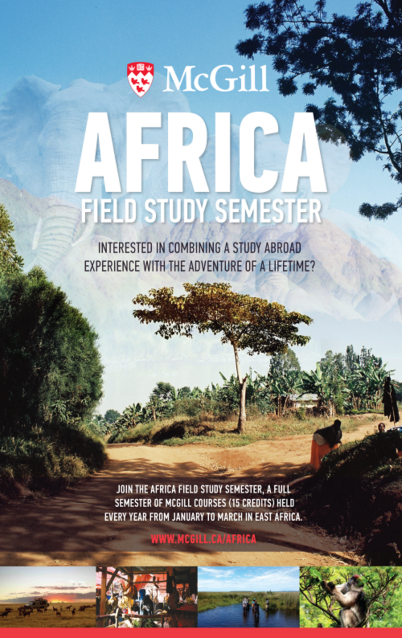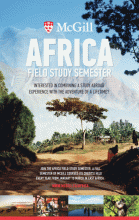A network of institutional bases
The program is run through facilities operated by reputable international research organizations. These facilities are run at international standards of health and safety, they provide lab, library and computer facilities, and allow students to be part of active research communities. The field stations will provide secure, comfortable, hubs for teaching and for student projects. The institutions are:
International Centre of Insect Physiology and Ecology;
ICIPE has several field sites in Kenya, including its Nairobi campus, which hosts the US Agency of International Development. As partners with ICIPE, we have access not only to their facilities but also to the medical network and the security system, which is linked to the UN system.
Our four ICIPE base sites are:
- on the outskirts of Nairobi, which we use as a base for exploring the famous National Museum, the international headquarters of the United Nations Environment Program, and issues of urban development;
- on an escarpment near Lake Magadi;
- on the shores Lake Victoria, the second largest lake in the world and head of the Nile River;
- on the Indian Ocean, where we explore reefs, coast forests and wetlands, and Swahili culture.
ICIPE's research agenda:
- Human health research contributes to the reduction of malaria and other vector-borne diseases by developing tools and strategies that control the vectors and break the cycle of transmission, which can be integrated with other disease management efforts;
- Animal health research aims to increase livestock productivity through development of integrated strategies and tools for livestock vector control, thus leading to greater availability of meat, milk, hides and draught power;
- Plant health research contributes to improved sustainable food security and environmental health through the development of integrated pest management (IPM) in field and horticultural crops and storage pests;
- Environmental health research concentrates on conservation and sustainable utilization of the agricultural production base and important natural ecosystems by encouraging and utilizing arthropod diversity; cataloguing and sharing biodiversity data and discovering endemic wealth by bioprospecting for useful natural products.

Established in 1922, Makerere University is Uganda's premiere institution of higher learning and one of the oldest and most prestigious universities in Africa. Home to over 30,000 undergraduates and 3000 graduate students, it is located on Makerere hill, about 5 km to the north of the centre of Kampala, Uganda's capital.
The University also operates the Makerere University Biological Field Station (MUBFS) located in Kibale National Park in the foothills of the Ruwenzori Mountains. Established in 1970, MUBFS has become one of Africa's premiere field stations that permits researchers access to a variety of ecosystems and a diversity of animals. This park illustrates the future of many tropical forests: it is an isolated forest island surrounded by humanized landscapes that range from small landholder agricultural plots to tea estates. As a result this park acts as a window through which researchers and students can easily study the conflict between wildlife and human needs, as well as addressing basic biological questions.
The Smithsonian Tropical Research Institute (STRI) is McGill's partner in its successful field school in Panama. STRI is affiliated with the Mpala Research Centre: a modern, secure, and well equipped field site at Mpala, in Laikipia, near Mount Kenya, where we camp in a forest by a small river. This is an area where students can safely conduct field research projects involving wildlife, while being accompanied by knowledgeable local guides.
In addition, we will move between sites with professional, reputable and recommended safari operators. They will take us into the best of Kenyan wildlife sites and to remote cultural and archeological sites.


